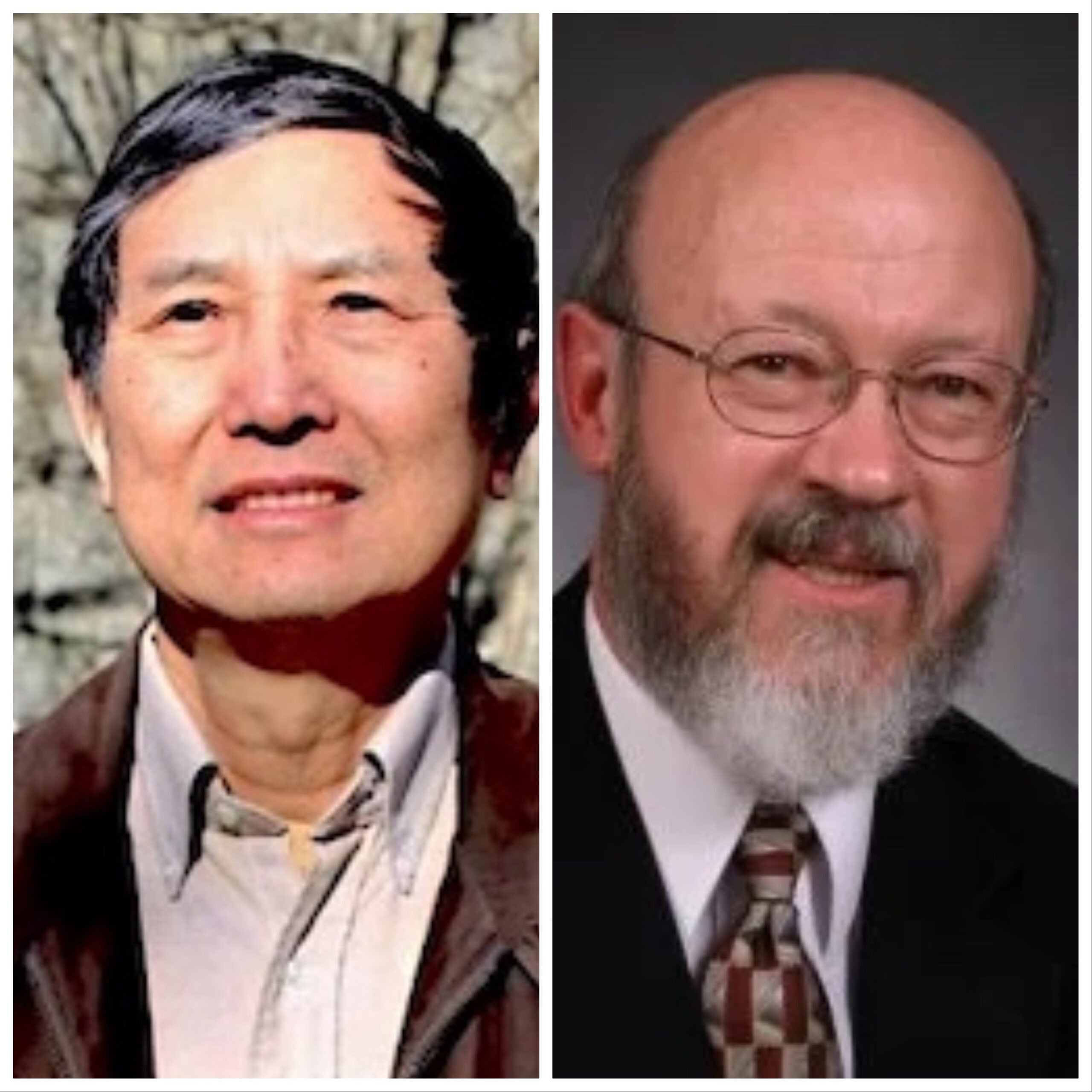The list identifies the world’s leading researchers making significant scientific impacts in their fields
Two active professors from the University of Rhode Island College of Health Sciences have earned a coveted spot on the list of Stanford University’s Top 2% Scientist Rankings, which identifies the world’s leading researchers, representing approximately two percent of all scientists worldwide who are making significant impacts in their respective fields.
Human Development and Family Science Professor Jing Jian Xiao and Gerontology Professor Phillip Clark have earned the honor on Standford’s career list.
Xiao is an internationally known consumer finance expert who teaches courses and conducts research in consumer economics and personal finance. His research specifically focuses on how to help consumers increase financial literacy, perform desirable financial behaviors, and enhance financial capability to improve their financial and overall wellbeing.
Xiao has published many research papers in professional journals in consumer economics and related fields. He has also published several books, including The Mathematics of Personal Finance, Consumer Economic Wellbeing, and Handbook of Consumer Finance Research. He is also editing a book series entitled International Series on Consumer Science. He serves as the editor-in-chief of Journal of Financial Counseling and Planning, associate editor for International Journal of Bank Marketing and International Journal of Consumer Studies, and editorial board members for several other journals in consumer finance. His research, with fellow URI Professor Nilton Porto, on “financial capability and wellbeing of vulnerable consumers,” recently won a “Best Paper” award from the Journal of Consumer Affairs, the leading publication in the field of consumer science.
In addition to his research and writing, Xiao has a history of advocacy in his filed. He has served as the president of American Council on Consumer Interests, and president of Asian Consumer and Family Economics Association. He has also been a consultant and guest speaker for several financial literacy projects sponsored by the U.S. Department of Treasury and National Endowment for Financial Education. He has presented his research on consumer finance throughout Asia, Europe and North America. In 2005-07, he was the inaugural TCA endowed chair professor and director of the TCA Institute of Consumer Financial Education Research at University of Arizona. He worked with faculty and graduate students from other universities in many countries such as China, India, Japan, Malaysia, Poland, USA, among others.
Phillip Clark is professor and director of both the Program in Gerontology and the Rhode Island Geriatric Education Center at URI. His areas of research include interprofessional education, health promotion with older adults, ethical issues in geriatric care, comparative health care policy, narrative gerontology, and aging and disability. He has served as Principal Investigator or Co-Investigator on $23 million in grants, including support from the National Institutes of Health, Bureau of Health Professions, Administration on Aging, Social Sciences and Humanities Research Council of Canada, Norwegian Centre for International Cooperation in Education, Robert Wood Johnson Foundation, and the Rhode Island Foundation.
Clark is an internationally recognized expert in geriatrics and is a prolific writer in his field, publishing his work in The Gerontologist, the Canadian Journal on Aging, Ageing and Society, Educational Gerontology, Gerontology & Geriatrics Education, and the Journal of Interprofessional Care. He is co-author of the book, Health Care Teamwork: Interprofessional Practice and Education, published in 2016.
Clark holds a doctorate in public health from Harvard University, and was a post-doctoral fellow in ethics and public policy at Wesleyan University. He has served as a Visiting Professor at the Universities of Guelph and Toronto in Canada, a Fulbright Scholar at Buskerud University College in Norway, and a Visiting Professor at the University of Huddersfield and Bournemouth University in England. He is a Fellow of the Gerontological Society of America and the Association for Gerontology in Higher Education.
Stanford’s list of top scientists, considered the most prestigious in the world, is based on bibliometric information contained in the Scopus database provided by Elsevier. To create the publicly available database, a group of researchers at Stanford University developed a ranking method based on standardized information on citations. The ranking formula and full list of scientist rankings can be found here.

